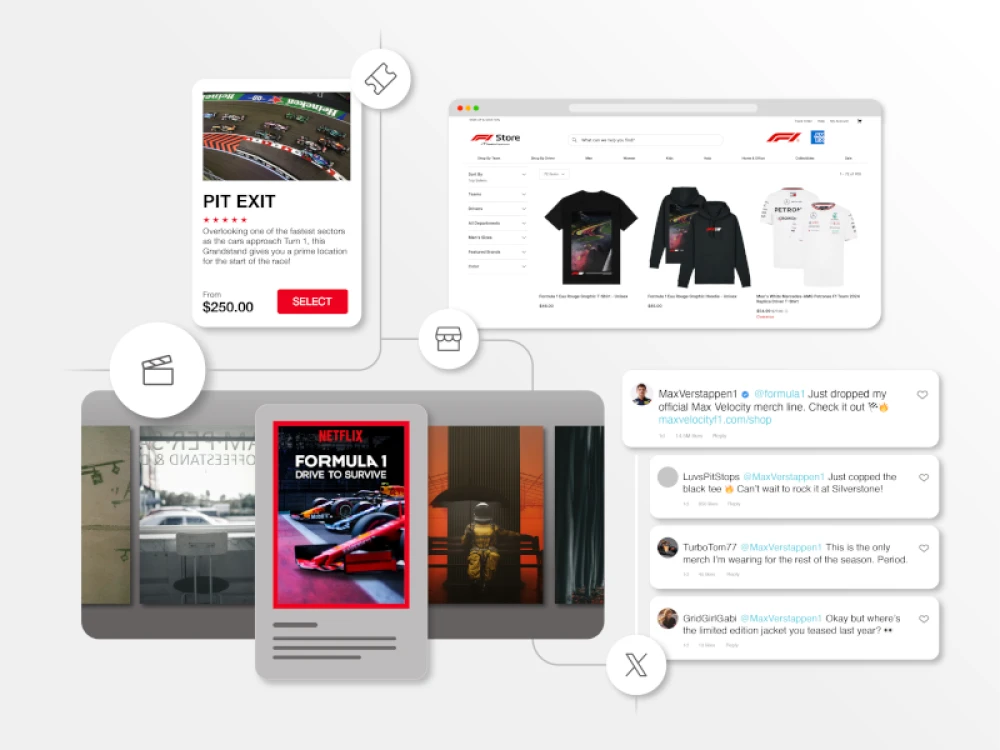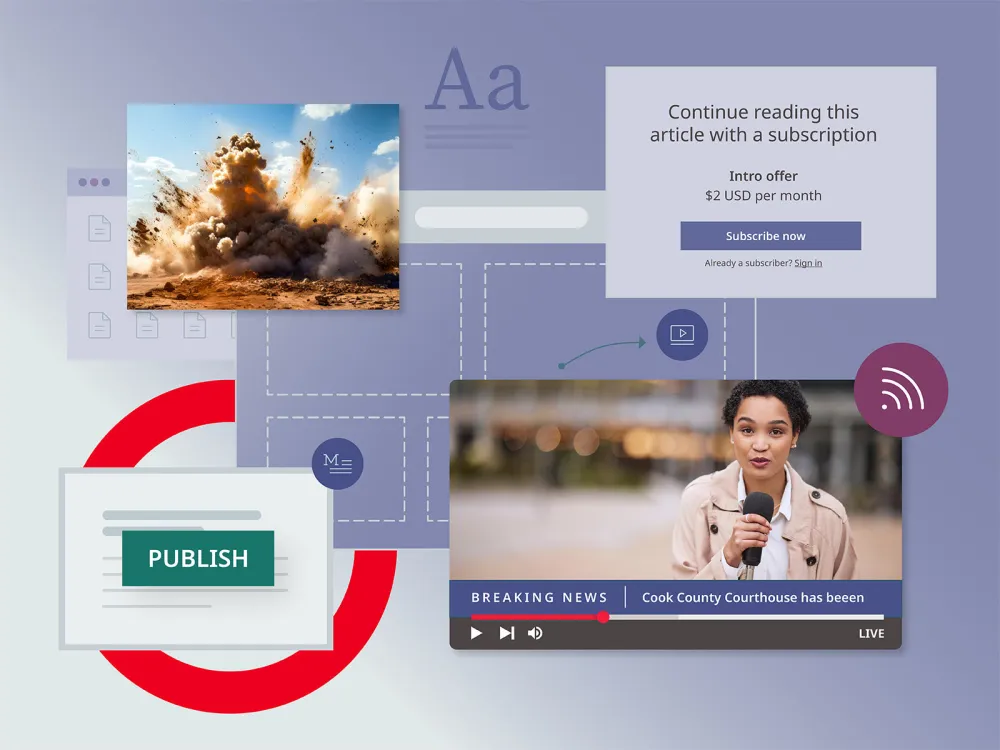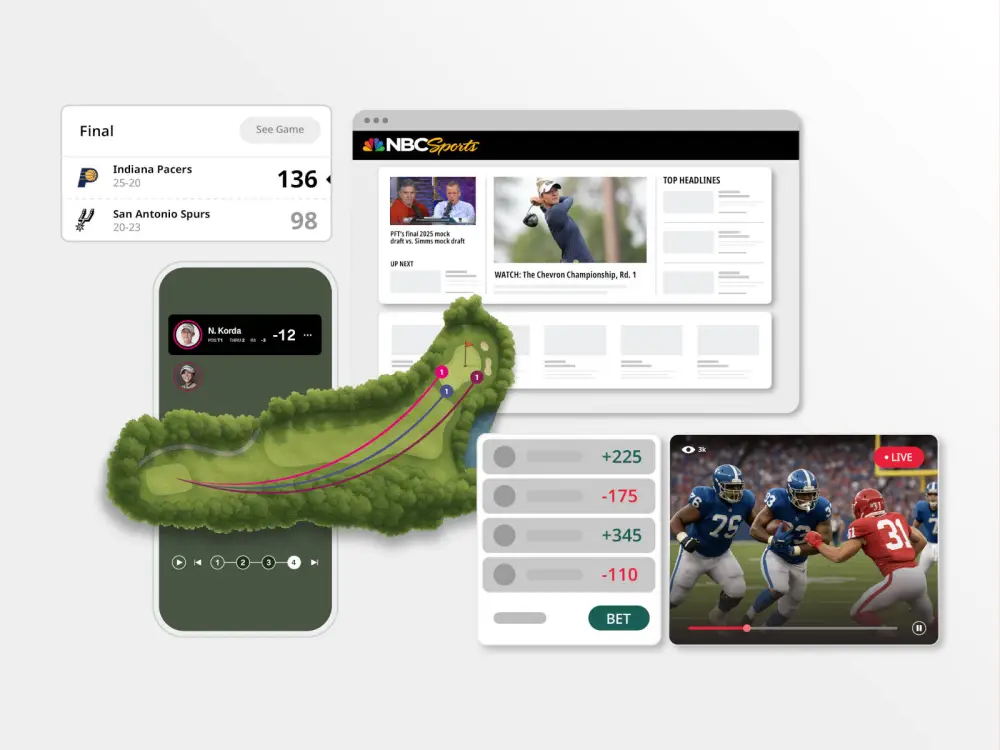From tractors to industrial equipment to specialized emergency lighting equipment, manufacturers share a common challenge: producing and managing a vast range of content. They need content that markets products, explains features, guides buyers through purchasing and builds trust in the company itself.
A content management system (CMS) is at the heart of meeting those needs. But today’s CMS is far more than a repository for press releases or blog posts. Increasingly, it functions as the digital nerve center of a manufacturing business, powering everything from global product directories and marketing campaigns to compliance disclosures and regulatory reporting.
Yet not every CMS is designed for the demands of manufacturing. Complex product catalogs, multinational operations, country-specific regulations and integration with both digital and analog systems require capabilities that go well beyond the basics. If you’re leading digital, IT, operations or marketing at a manufacturing company, here are the key qualities to look for.
Smooth integration with the manufacturing tech stack
CMS is only one part of a much bigger technology puzzle that includes ERP, PLM, DAM, MES and CRM platforms. For manufacturers, it’s essential that these systems talk to each other so product data and related assets stay consistent everywhere.
Why it matters: Precision matters in manufacturing. Integrated systems ensure that specs, manuals, safety information and marketing materials are always accurate and synchronized, avoiding duplication or costly mistakes.
Example: Whelen Engineering relies on Brightspot CMS to draw product imagery from an external DAM. This setup keeps its online catalog automatically updated with the most current photos, specs and guides as assets change upstream.
Governance and compliance built in
Whether it’s automotive safety standards, pharmaceutical regulations or regional labeling laws, compliance is an ever-present concern in manufacturing. A CMS should enforce strong governance through role-based permissions, approval workflows and audit trails so only verified content is published.
Why it matters: Errors can trigger fines, recalls or reputational damage. Structured, modular publishing and workflow controls reduce risk and make compliance more manageable.
Example: A major pharmaceutical company recently had to audit all public-facing content to comply with new healthcare regulations. Its CMS provided versioning and workflow controls that made the process efficient and reliable.
Multi-brand, multi-region and multi-language management
Manufacturers rarely operate in one market or under a single brand. The right CMS enables management of multiple product lines and regional sites from a single platform while supporting local market needs.
Why it matters: Centralizing control ensures consistent branding while enabling faster localization for global teams.
Example: A manufacturer of some of the world’s most recognized beauty and healthcare products runs regional portals and its corporate site on one CMS. Assets and messaging are shared globally but each country can localize content for its audience in markets such as Brazil, Japan and the United Kingdom.
Tools that empower business users
Marketing, product and operations teams need the ability to update content directly without waiting for IT. Modern CMS platforms provide administrative controls for managing redirects, vanity URLs, workflows and more.
Why it matters: Eliminating IT bottlenecks accelerates product launches, distributor updates and campaigns while freeing developers to focus on strategic projects.
Example: Whelen Engineering’s marketing team manages distributor information via Google Sheets. Through an iPaaS integration, changes flow into the CMS and appear instantly online — without requiring anyone to log into the system.
Composable capabilities that scale with growth
For manufacturers, replacing core systems outright can be risky and expensive. That’s why a modern CMS should be modular and composable, allowing businesses to start small and scale capabilities gradually.
Why it matters: Incremental rollouts reduce disruption, deliver ROI faster and prepare businesses to adapt to new technologies such as AI content generation or IoT integrations.
Example: Banner Solutions used Brightspot’s hybrid CMS to modernize its marketing content operations without overhauling its existing e-commerce infrastructure, phasing in improvements at its own pace.
Final word
In manufacturing, a CMS is much more than a marketing tool — it’s a digital command center. The right platform unites data across systems, safeguards compliance, empowers teams and evolves alongside your business.
If you’re evaluating platforms, prioritize a CMS that can integrate seamlessly, scale flexibly and meet the complex demands of a global manufacturing environment. Brightspot partners with manufacturers to deliver exactly that.













